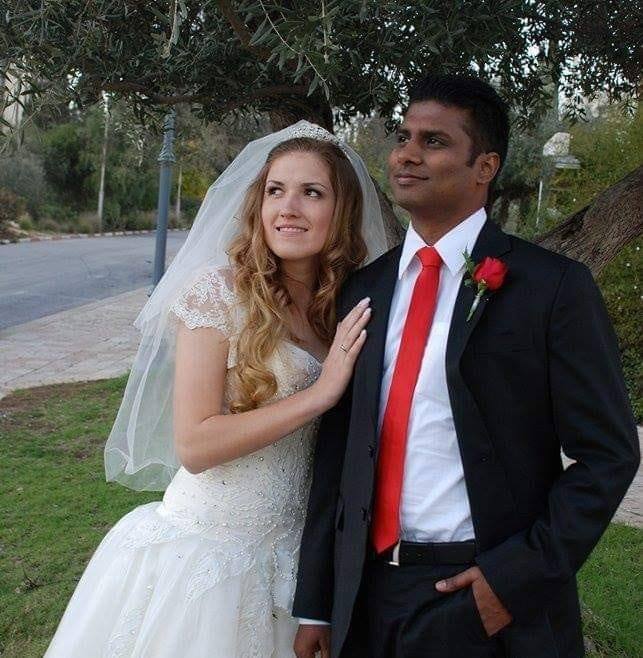Intercultural Marriage: An Indian and a Ukrainian Woman
23 October 2024
“The most important thing is to realize that the Bible is the first law in the family.”
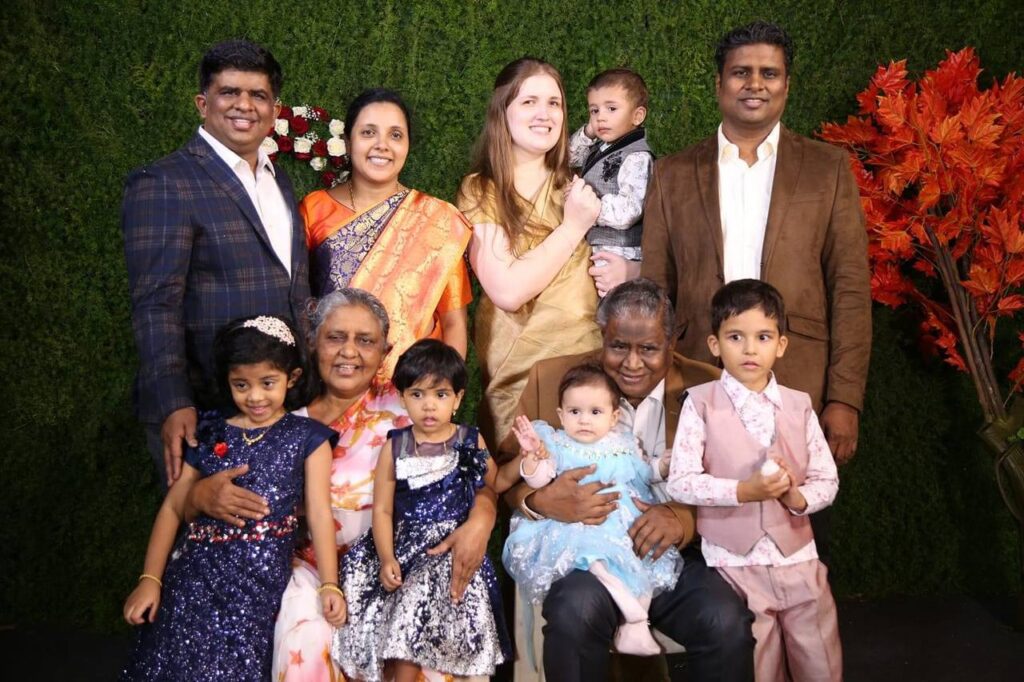
Originally from southern Ukraine, Oksana Makeieva has lived in India for 13 years. She is married to an Indian man, Morris, the son of a local bishop, evangelist and church pastor. They have four children between the ages of 3 and 10.
They live and minister in Bangalore-Karnataka, a state where the penalty for preaching the Gospel is one year in prison and 15 years for a convert to the living God. In the states north of Bangalore, people are killed for preaching the Gospel.
How does a girl from Ukraine preach to Indians in the face of danger? How did she adapt to the culture? And some scary stories about local gods.
When the groom didn’t show up at the altar, or the love story of Oksana and Morris.
What are the pros and cons of serving with a spouse, or is it easy to love a pastor husband? How do people in India view marriage and parenting? What is important in a long-distance relationship, or how to avoid the trap of illusions?
The missionary told us about these and other things in the interview.
Oksana, how did you end up in India?
I was born in Ukraine, in Kherson. I was an orphan and my life was very hard. In the last year of my boarding school I was told about God.
After boarding school, a Christian mission helped me in my college years and took me in. There was a very kind woman in the mission, Nadiia, who told us about God very well, prayed for us and always said that God had a great calling for us.
One summer I attended a youth conference in Malyn (Zhytomyr region, Ukraine) and realized my calling when I saw a white girl holding a black child. That’s when I knew I wanted to serve in Africa. Later, I went to study at a missionary school, and transferred to a part-time program at the institute where I was studying management.
While in the school, I prayed and asked the Lord to show me a country in Africa and give me a specific vision.
Our missionary school was not a religious school. Every teacher was a practicing evangelist. For example, one missionary taught us about healing, there were testimonies of limbs growing back in his ministry. The one who taught us about evangelism had traveled to 100 countries to preach the Gospel. That means we were taught by people who lived the mission. Not just people who knew the theory. That’s why we, the students, were all very charged with evangelism.
Two weeks before graduation, God showed me a vision, not of Africa, but of India. I saw a market where women were dressed in saris and various spices and fruits were being sold.
India, well, I wouldn’t say I liked the idea about it. But later I realized that God was really showing me a vision for India. I saw videos that said they worship everything, anything, but not the living God. I was very touched by that. So I told the Lord that if at least one person in India turned to Him, I would go.
Nine months later I got a one-year visa and in 2011 I found myself in that country.
You made it to India. What happened next?
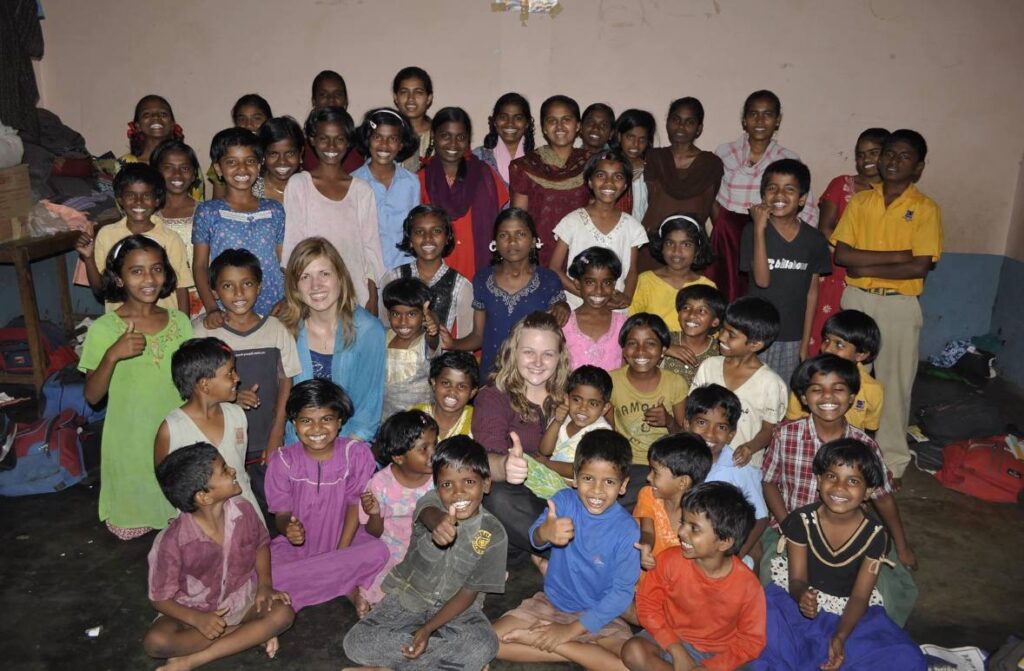
I started to help other missionaries in orphanages. I went with them to preach to the people in the jungle. We had to finish evangelizing by 4 PM because tigers and elephants would come into the village and usually cause damage and destroy something. The jungle is so deep that it was only in the early 2010s that electricity was brought in.
How did your cultural adaptation go?
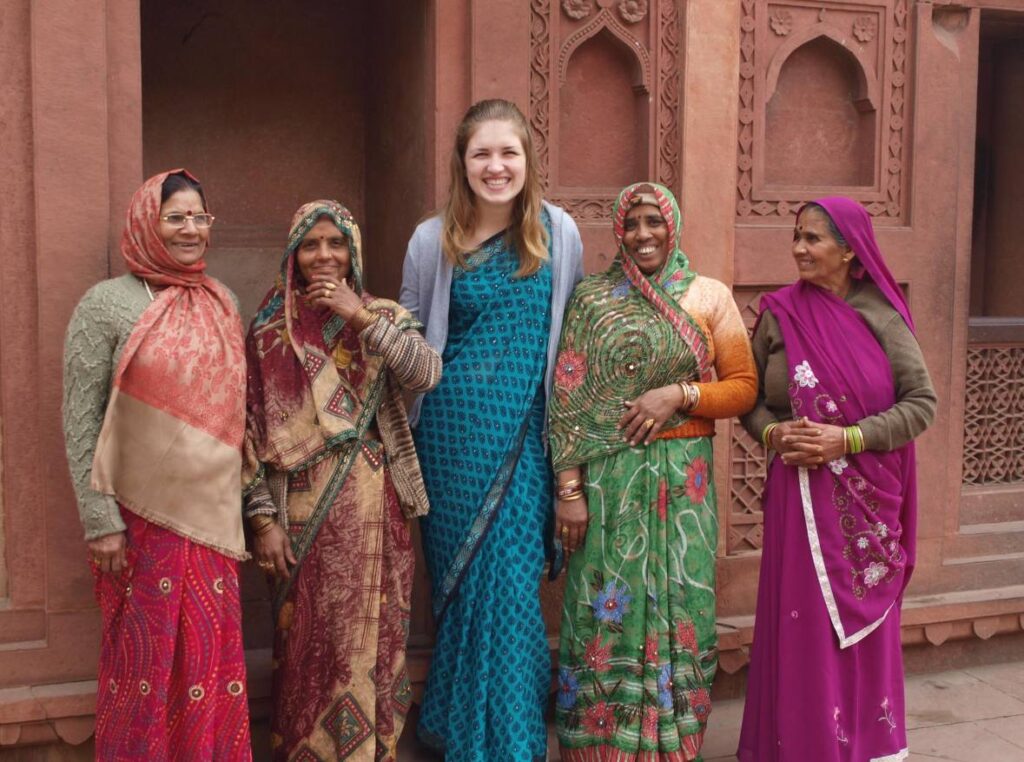
In general I like different cultures, so it was interesting, but at the same time scary because of some things.
Lynching is common in India. For example, on the street where I lived, locals caught a married woman talking to a man. About 50 people threw stones at her and pulled her hair. My colleagues and I didn’t know what had happened, we didn’t understand if we could stand up for this woman or if we would be stoned too… This woman was beaten for an hour before the police arrived. It was very scary. I was also afraid to preach the Gospel. Once, after evangelizing, I was on a bus and a man tried to grab my hair but people stopped him. There are many possessed people here and they are very violent.
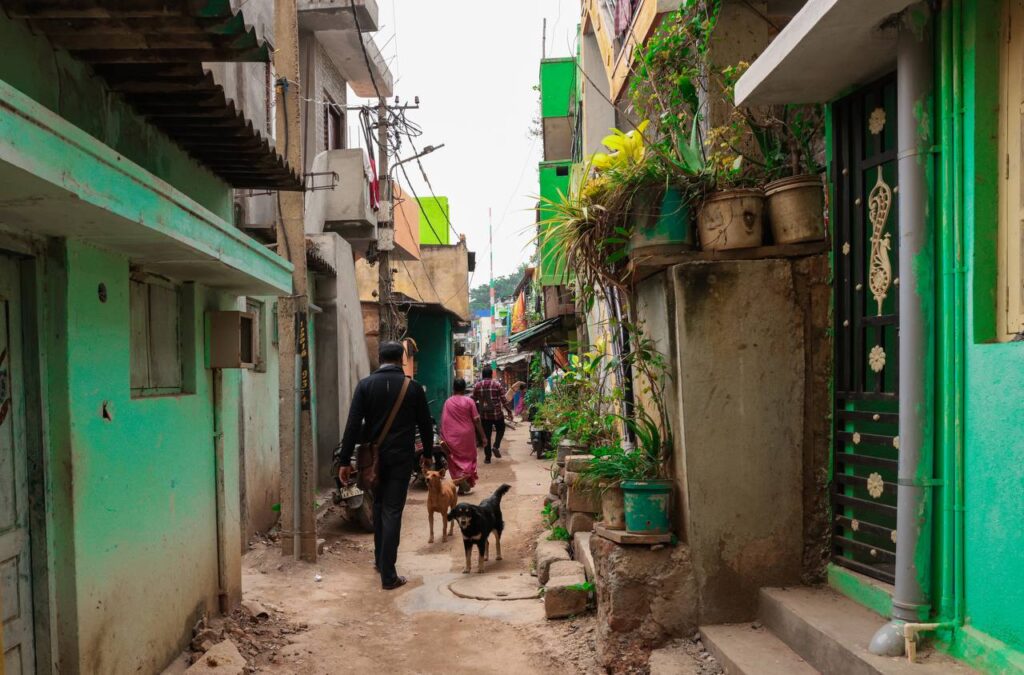
There was a temple on the same street where I lived. There were demonic dances, rams were sacrificed, and women screamed at certain times of the night. We couldn’t sleep because of the demonic presence and we prayed on our knees until 3-4 in the morning.
Another temple worshiped a serpent. It was a real snake – a royal cobra, very dangerous. When it bites, a person has only five minutes. If no one helps them in that period, they die. But for the locals, it became a god that they fed with milk.
Every time I walked past this temple to the bus stop, I was scared – the cobra was only two meters away. The other missionaries and I prayed for it to be killed. It bit a child who died instantly, but the locals saw it as “god gave, god took”. After this incident, Muslim children came to the area and beat it to death.
How do you share the Gospel in your area?
In the church we communicate freely – this is our territory. I don’t have the right to preach in the streets, it’s dangerous because I can be deported, but I work directly with people in the church.
The people themselves bring others to the church. Mostly people turn to the living God here when they need miracles of healing: AIDS, tuberculosis, syphilis, etc. They also come when they have huge financial debts.
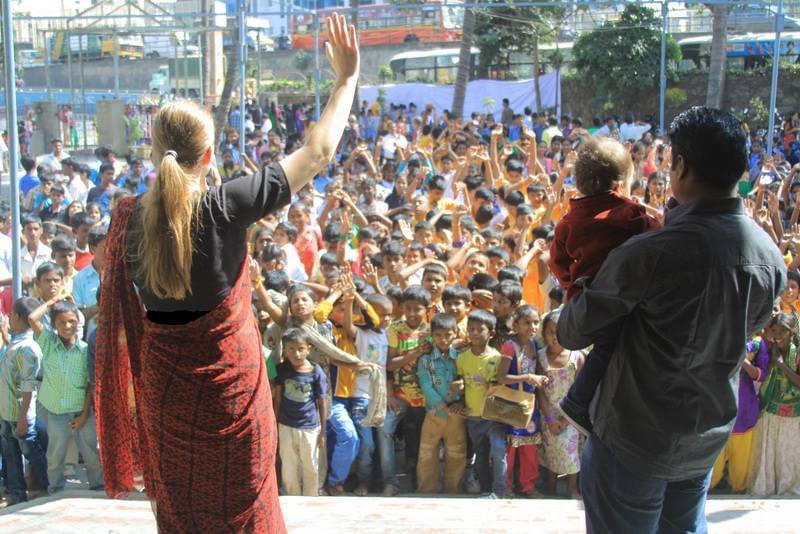
Our church is like the last resort for them after they have visited all the temples, all the doctors, and spent all the money. Becoming a Christian here is the last thing people want to do. But they come because of their hopelessness, and the Lord performs miracles.
And then they tell others: word of mouth works.
We have old ladies who can neither read nor write, but they bring many people to church.
The Gospel is preached by our local missionaries, who visit five families every day. I lead women’s meetings and take care of the children’s ministry – we feed 100 children every day. We have more than 20 teachers in the church who teach these children. Every week we reach more than 800 unbelieving children through this ministry.
How did you meet your future husband?
I met my husband, called Morris, at a pastor’s house. He told me that he had just returned from evangelizing in Korea and was about to go to Nepal. He shared his testimony of having a gun pointed at his head for preaching the Gospel.
He shared the great miracles of God like the lame walking and the blind seeing. That was our first meeting. But to be honest, I was very busy with the mission and so was he. He was a pastor of a church by that time, but he didn’t tell me about it.
After that, I went to serve in another city, at an orphanage, and I called Morris to send me worship songs to learn. That’s how we started communicating.
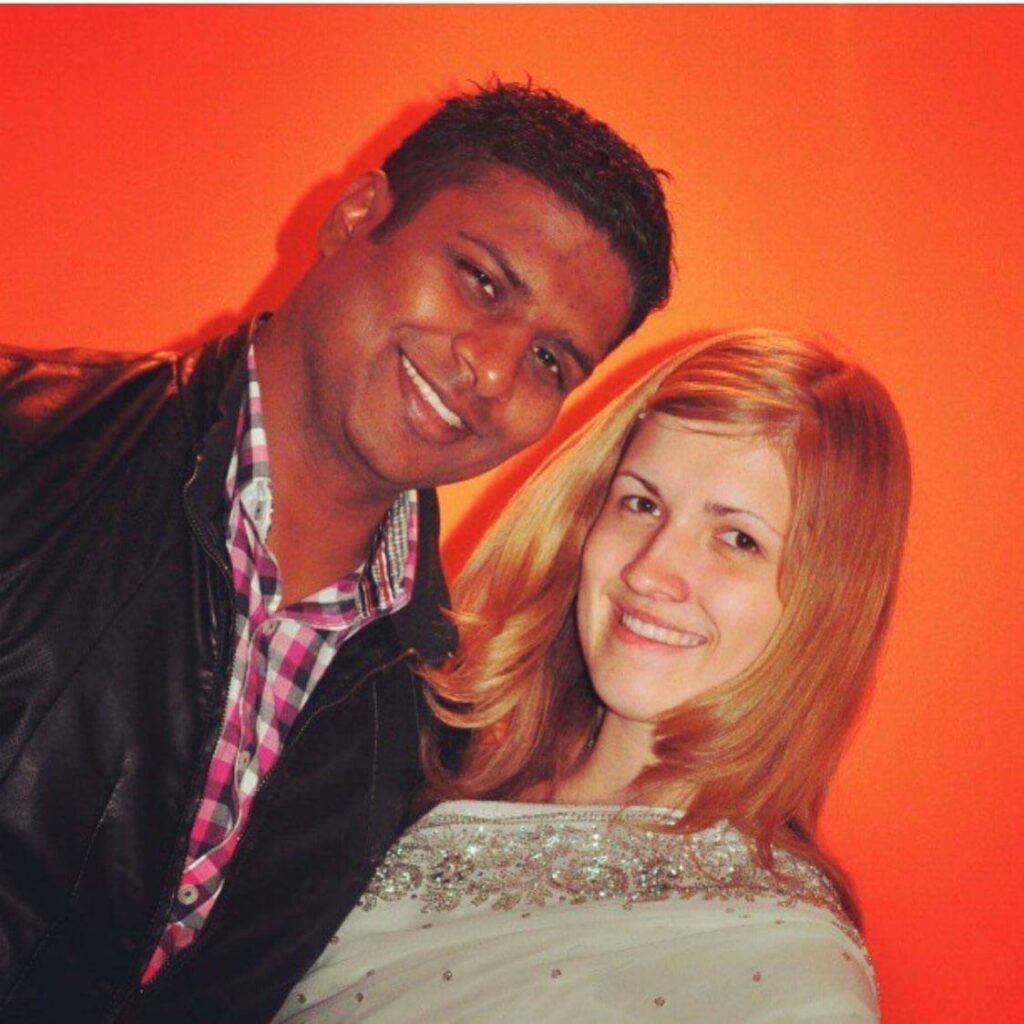
My future husband spent seven months of the year on a mission somewhere, visiting 36 countries in all, preaching the Gospel everywhere. I kept hearing from him: I’m going to China, I’m going to the Philippines. I liked it very much, I thought I would like to be with such a man who loves God so much and is willing to give his life for Christ. In spite of the danger, he still goes to the same places where the Lord sends him and he really fulfills the mission.
Of course I also liked his appearance, he is very handsome. But the first thing I noticed about him was the fire to serve God that only the Lord can give.
After all, this is exactly what my prayers were for: to be with a man who is zealous for the Gospel. I am the same – an evangelist by life. Wherever I am, I am always evangelizing. The feeling of telling someone the Good News is so fulfilling!
We started communicating with him, and a month later we started talking for hours on the phone. That’s when we realized we liked each other.
We had a “phone” relationship because I was in another state in India.
How did you get proposed to?
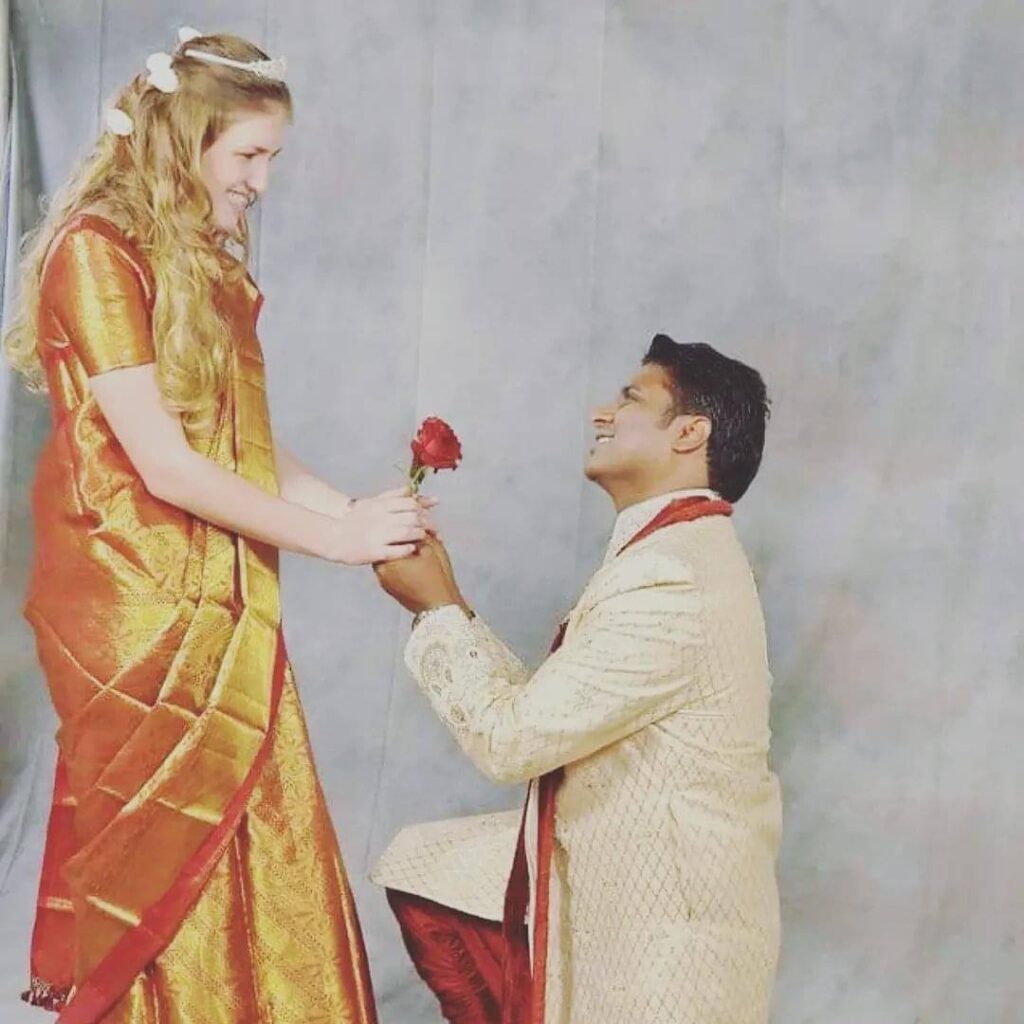
I came back from a trip and Morris came back too, and we were in the same house and ended up in the kitchen. There he asked me if I wanted to marry him, and I said, “Listen, I’m doing the dishes.” And I started joking around: “where’s the ring, where is getting down on one knee?”
But there was also a back story when his mother told him about me when she saw me at a conference and said, “Look, what a beautiful girl”. In her culture, the opinion of parents is highly valued.
In India, 95% of all marriages are arranged by prior agreement, which means that love is not a prerequisite, the main thing is how the parents of the parties decide.
I visited her home, saw the church, which was already large, with about 5,000 people.
After I agreed, I went to Ukraine and then to Israel, because we decided to have the wedding there.
What was your wedding like? Why did you choose Israel?
Due to my circumstances as an orphan, I didn’t have much money or opportunities, and I didn’t know anyone who could help me organize the wedding. My husband has four brothers, and you need permits to invite them to Ukraine… And in order to have an invitation, I had to have a place of registration, but I didn’t have it.
And my husband’s parents dreamed of going to Israel. So they decided to make a tour, and my pastor from Ukraine offered to help with the wedding. At that time, his pastor friends were about to leave America for Israel, so he promised to arrange and pay for the wedding.
We were supposed to get married on November 15, but my husband did not come to the wedding that day. Everything was ready, I was wearing a white dress… his parents arrived, all four brothers, the older ones with their families… And he couldn’t because he hadn’t applied for a visa with them in time, he relied on his travel experience. And in India, in his state, it was a holiday and the embassy was closed. All the guests, including the 30 pastors and their wives who had come from America, returned home. It was all over for them. And I was told, “This man has left you”.
My father-in-law, a bishop, is a very respected man in Bangalore, and all of his sons, along with my husband, serve as pastors. But for those who said I was deceived, this was not an argument.
Then my pastor said that if the wedding was called off, maybe it was not from God?
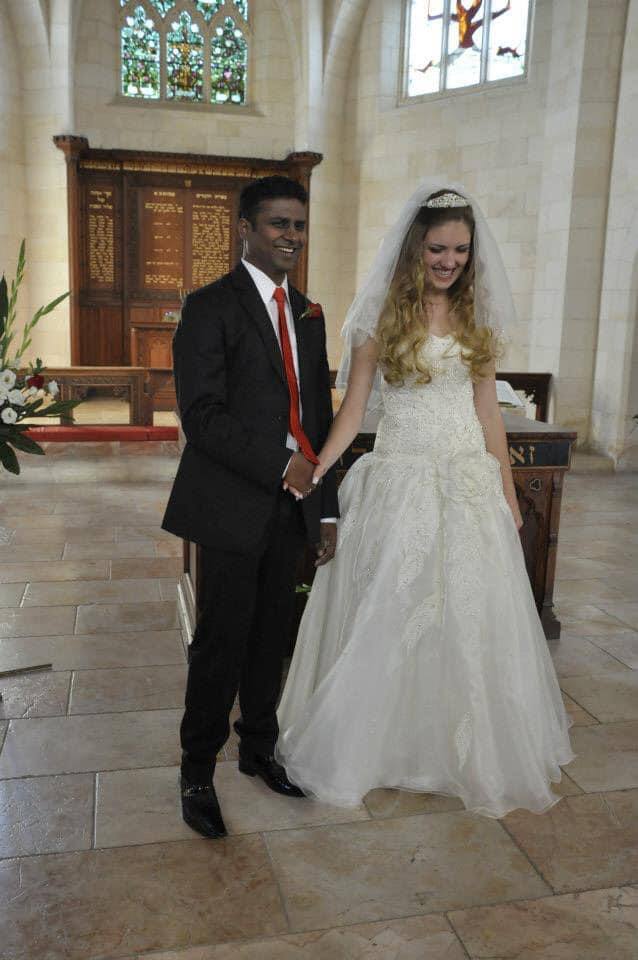
I spent another month in Israel and my husband arrived in December. His parents and relatives also came and we had a small wedding. I thank God for everything! We got married on 12.12.2012 in the oldest church in the oldest place in Jerusalem.
What is the attitude towards marriage in this country?
India is very diverse in terms of religion. For example, in Bangalore, 35% of the population is Muslim and they can have up to four wives. According to the Hindu religion, a man should be faithful to one wife, but in reality this is not the case. They often have a mistress, who is provided for as well as their official wife, and may have children with her.
In a marriage, a woman has to respect her husband; here, the man comes first, and the woman has the position of “obey-obey,” “yes, master.” In their language, you cannot call a man by his first name, it is considered offensive.
Here, children are taught from an early age that women should do everything around the house. I’m always reminding my husband to help me, even though it’s such a simple thing.
My mother-in-law used to do everything in the house herself. Even when her children grew up, nothing changed.
How did your husband’s relatives treat you?
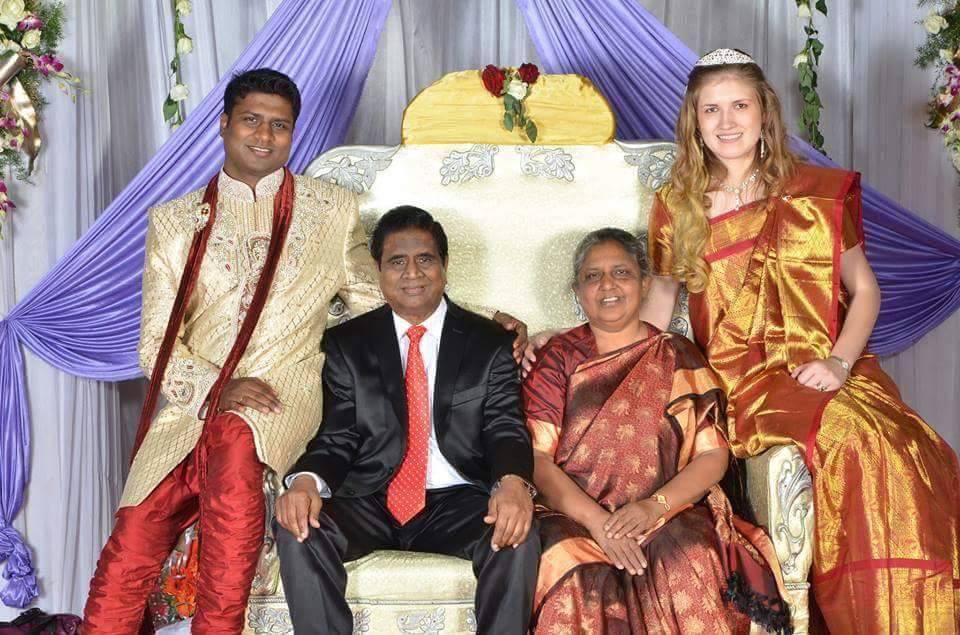
My mother-in-law was very kind, she really accepted me like a daughter. She went to be with the Lord three years ago. I guess she loved me more than her son. When I complained, she scolded my husband. She loved girls because she had five sons. She was a very tough woman, small, but she was in charge of everything in the family. My father-in-law was strict as a husband, father and bishop, but my mother-in-law was even tougher.
I felt a lot of envy and reproach from other relatives, like, “Don’t sit like that, don’t stand like that”. If you do something wrong, we will slap your face.
Here, people think that if I’m light-skinned, it means I’m very rich, so they ask me why I didn’t buy an apartment for $200,000.
Some say my husband married a diamond. To them, white means very rich.
How significant are cultural differences in a relationship?
At the beginning, everything is very easy because you are on a wave of love. But about a year after the wedding, it got harder. I explained to my husband that he had to help me because it was not in their culture to change a child’s diaper.
But because my mother-in-law was there, it was easy for me. Of course, I expected my husband to help, but my mother-in-law took care of everything.
When she passed away, I felt the difference.
What do you think is most important in developing cross-cultural relationships?
To realize that the Bible is the first law in the family, so that traditions do not remain the most important. That way everything will be cool and blessed.
How do they treat parents in India?
With great respect, I saw that. If I am asked whether I want to live in Ukraine, America or India, I will choose India for the sake of my children, because the respect for parents is really high here. Here, children grow up with great obedience.
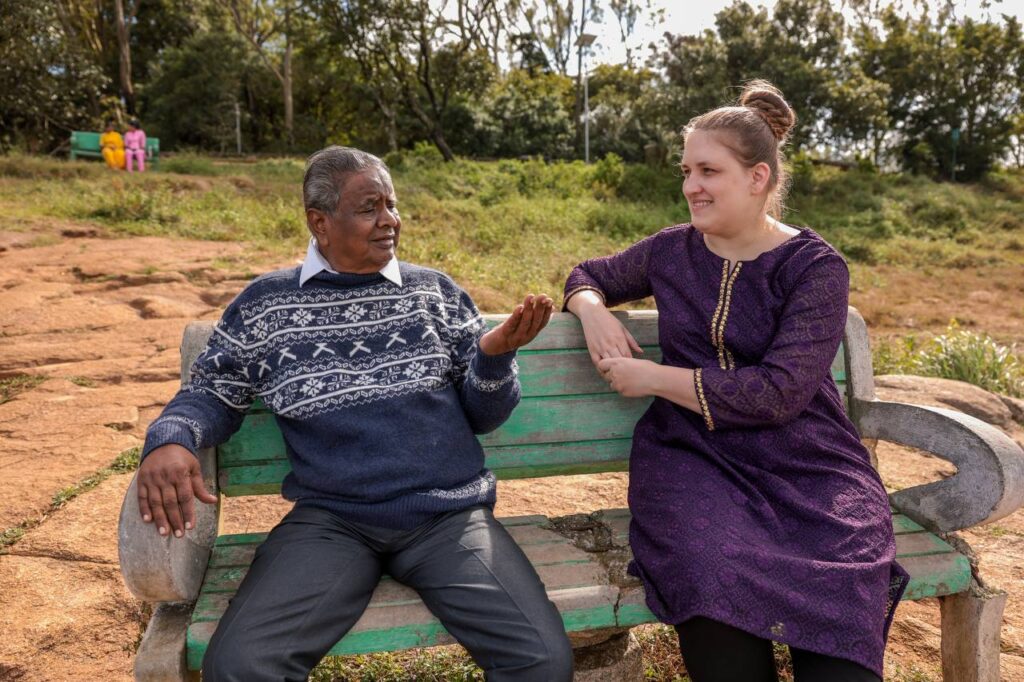
Even my husband, at the age of 40, still says that he will do what his parents say. And this is not only in Christian families. Unfortunately, there is also a bad attitude towards parents. For example, we support 119 widows, most of whom were kicked out of their homes by their children. But in general, their culture involves respect for parents.
My father-in-law lives in our house, he comes first, if he needs something, we help him, his word is important to us.
Widows are treated very, very badly here. One girl from Ukraine lost her Indian husband to cancer, and as a widow, her husband’s relatives did not allow her to leave the house. Here, his wife was blamed for his death. She could not even go to the store, only on certain holidays, otherwise it would be considered disrespectful to her husband. She waited until her children finished school and left the country.
How are children brought up in India, what is the most important thing?
Here the father is very strict in the family and the mother is the embodiment of love. That was the case with my husband, but I can’t say it’s the best option. My father-in-law used to be very strict with his sons, but now he tells my husband, “Look, you can’t beat children, you have to use love.” And my husband replies: “You say that now, but you used to give us a good whipping.”
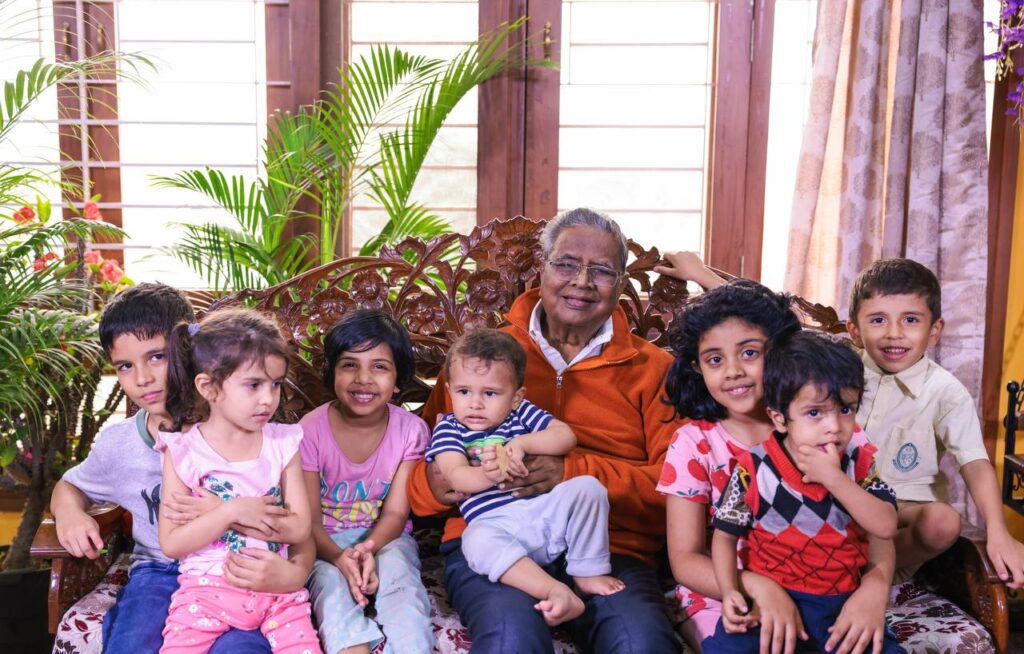
Our youngest, John, is three years old, he prays with us every day. He gets down on his knees and prays for a minute and a half, and so does every child. Spiritual things are very important to us. We read a chapter from the Bible together and sing five songs.
It’s not just us. As a pastoral family, we teach others in the church that this is how it should be. About 90% of our church members pray, and even those who have unbelievers in their families still find the opportunity for it.
The first is spiritual, and the second is educational. As parents, we try to teach our children to love God by encouraging them to read the Bible. When they ask why they need to read the Bible, we tell them that no one can establish a relationship with God for them. We also try to teach respect for parents and people in general.
Are you prepared for your children to enter into intercultural marriages?
I really want my children to marry for love in the future, regardless of local cultural traditions. And it doesn’t matter what culture those people come from.
I think it’s very difficult to live with a person who was chosen by your parents and not by you.
What differences in everyday life have you noticed between you?
Here they eat with their hands, not with a spoon, even though they have spoons at home. They sit on the floor even though there is a table and chairs. The utensils are steel. I give my husband food in glass, he says to give it in steel.
There are many spices, the food must be very spicy. I have to put ten spices on a dish, and chopped chili. It’s not tasty without the heat in your mouth.
I have gotten used to it, but I have some digestive problems, so I pray to the Lord for help. A child of two is already starting to get spicy food here.
Give me a recipe for one of the national dishes.
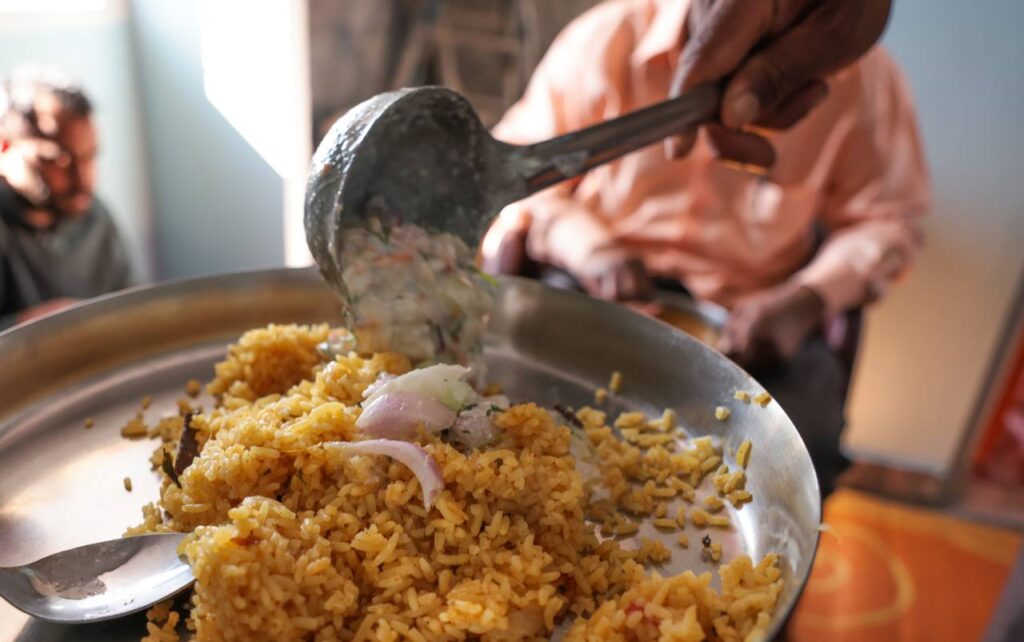
The most popular dish is biryani. It’s a chicken pilaf. They put a lot of tomatoes and onions in it.
Because we are a pastor’s family, people often cook and bring us sweets and also biriyani, so I don’t cook it often.
We eat rice every day, for lunch and dinner for sure. But with different sauces. Our main sauce is pea sauce with tomatoes. In the morning we have rice flatbread.
I cook Ukrainian food because our two children like it, although my husband and two other children prefer Indian food.
In the evening I try to cook something Ukrainian, and for breakfast and lunch I cook something local.
How does the joint ministry affect family relationships?
I can’t say that we have a joint ministry, because in India men and women sit separately in the church.
My husband is on the phone all the time, dealing with people’s problems. We can have people in our house at night. In one day we can have 40-50 people come in unannounced. My husband can be out at three in the morning helping people.
When I try to bring a problem to him and I hear back that a person wants to commit suicide, I realize that my problem is not a problem.
Ministry is about sacrifice. I always have to sacrifice my husband because he should be in the church serving people.
Of course, if there is a problem, we stand together in the breach, in prayer. That is one of the advantages.
In addition, we raise our children in a spiritual atmosphere, and they know the Bible and God, even though they are taught in schools about idols, about Allah.
When people see our relationship as believing spouses, they can discover God. We can also be an example as a large family, because in India they don’t want to have more than one child yet.
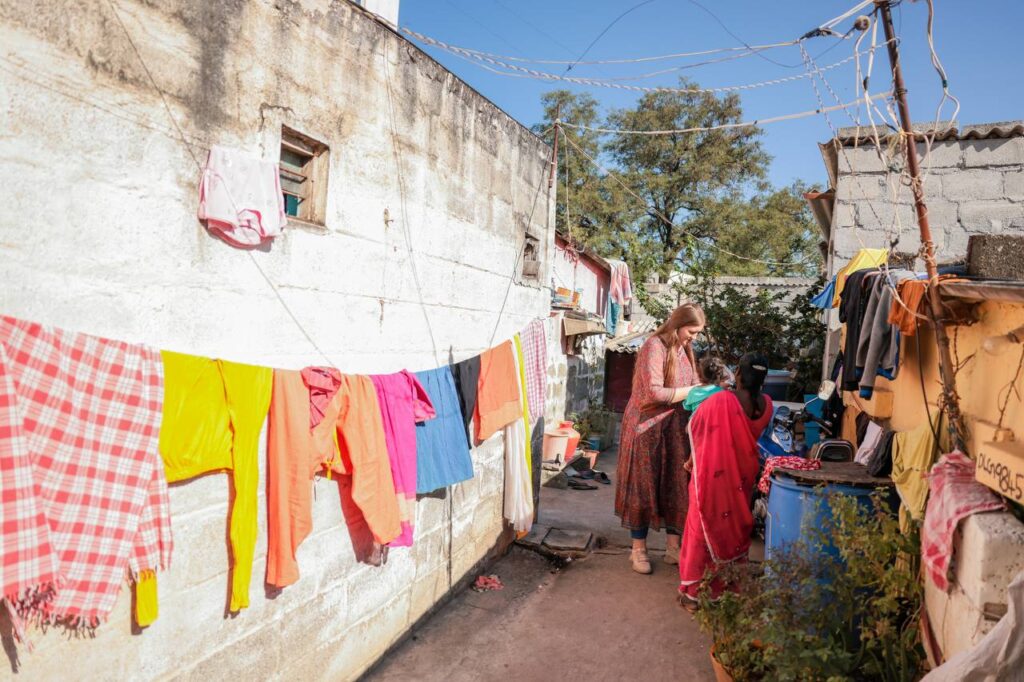
Mutual understanding is important in life and ministry – understanding cultural differences, values, and customs.
Then it is communication: open and honest communication is the basis for conflict resolution.
Being flexible and adapting one’s views and approaches to new cultural contexts.
It is important to respect the cultural traditions and customs of other peoples.
But the foundation in all things is the Holy Scripture.
What advice would you give to people entering into an intercultural marriage?
First of all, you have to ask God if this is His will. If it is and God has called you, then He will do wonders through you and you will overcome all difficulties and your family will be for the glory of God.
After marriage, when the first difficulties come, it is important to go back to what God has said regarding you and your marriage. Before that, you must receive a word from God personally, not from a prophet or pastor. That way, you will always have a backup: God has spoken to you, that you will get through anything, and that the Lord Himself has put you in this place.
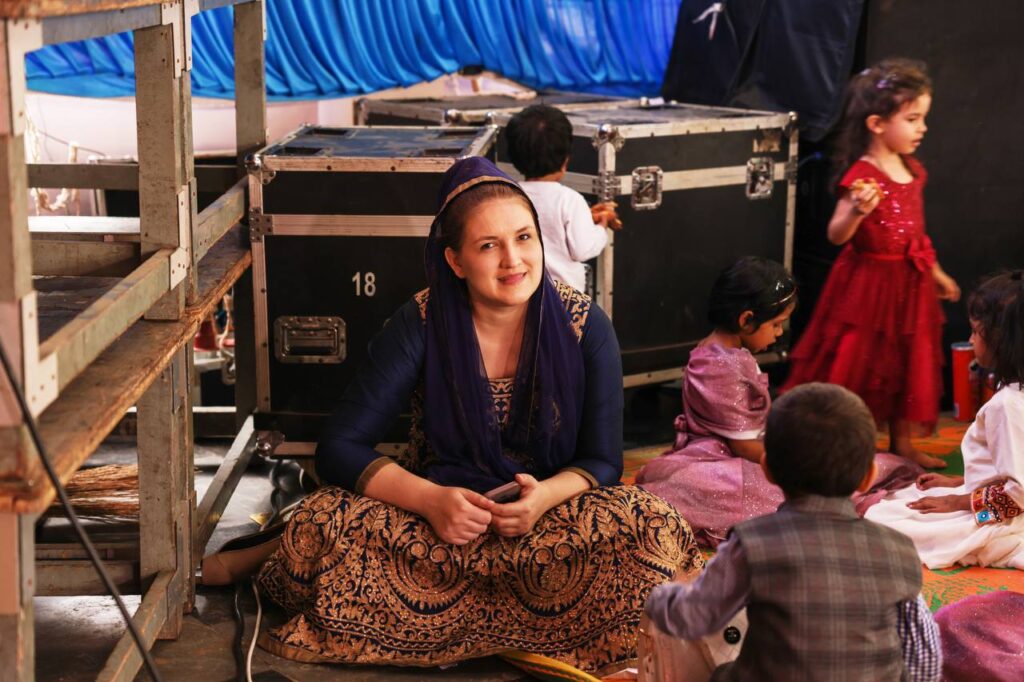
There will be problems in any marriage, so it’s important to cling to the Lord.
If there are problems from before the marriage that seem unresolved, you may need to call off the marriage. But if you think you can overcome them, then get married. It will be worth it!
Another important point.
You have to be very careful when communicating online. You should definitely go and check everything, because a lot of lies can be told online. You have to see everything with your own eyes and know what you are agreeing to.
CITA Press Center, Hanna Zeleniova.
